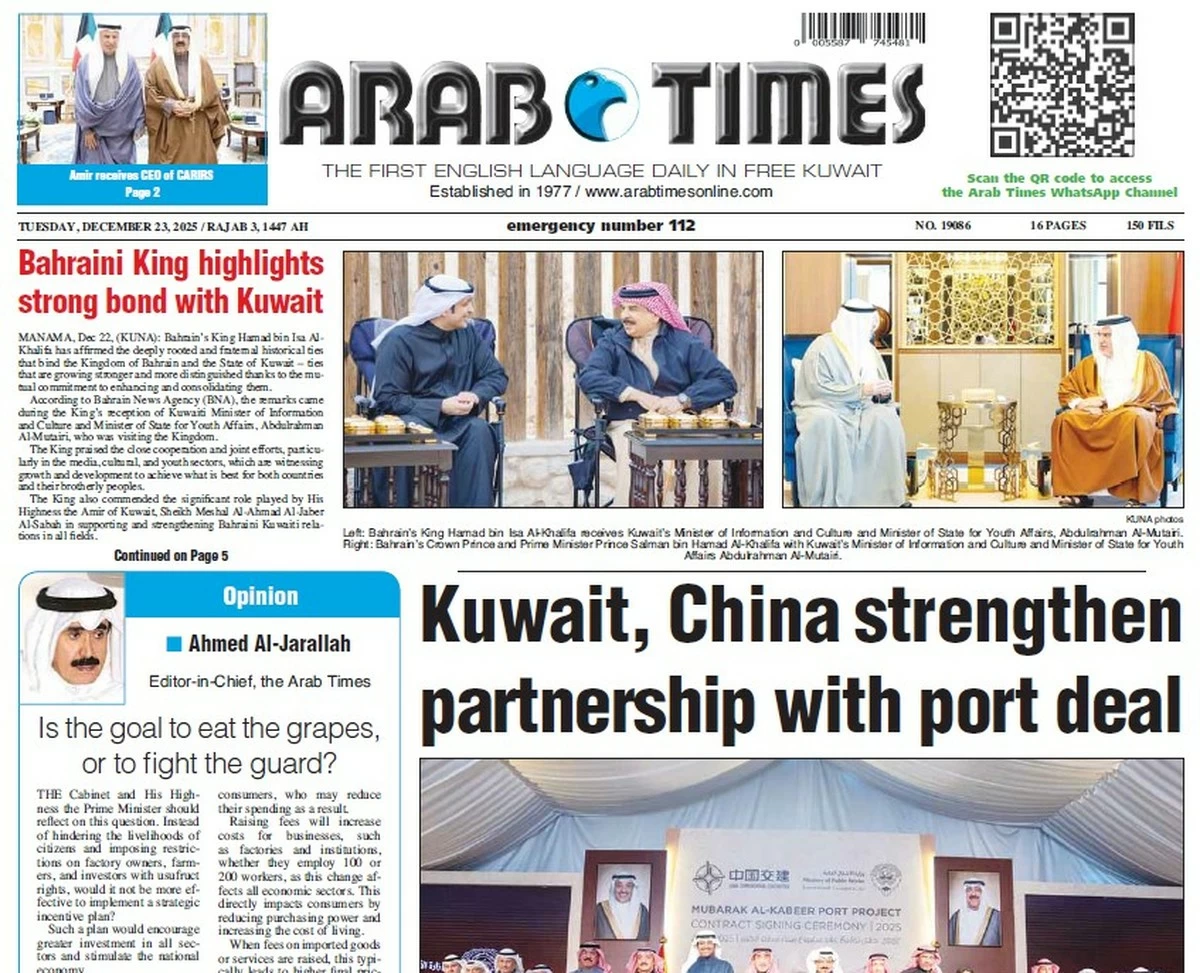25/05/2025
25/05/2025
The revocation of agricultural plots promotes reliance on imported food at the expense of national agricultural production, which poses a serious threat to Kuwait’s food security. The withdrawal of industrial plots raises even greater concerns, as it often stems from short-sighted decisions based on unverified or malicious complaints, or from mismanagement by executive officials within the relevant institutions. In some cases, these decisions appear to serve the interests of individuals who are willing to pay more. Kuwait has struggled with an inverted administrative pyramid for decades. Kuwait continues to rely heavily on importing its most vital commodity - food.
While there have been some cautious and limited efforts in the past to boost local food production, these initiatives were often derailed by the interference of influential figures, including former MPs and even ministers, out of envy. Strategic security extends far beyond military and security capabilities. Food security forms its very foundation, closely followed by industrial security. For this reason, countries make every effort to strengthen both sectors as much as possible. Dear Minister of Commerce and Industry, you have much to do ... quickly.
On this basis, US President Donald Trump adopted a project to encourage manufacturing in the United States. He started by imposing trade tariffs on many countries, and then recently issued an executive order placing high tariffs on cell phones manufactured outside the US. Trump then urged American businesses to bring their manufacturing back home. In China, deserts have been transformed into fertile land through the use of treated water, which is recycled multiple times via advanced purification processes. This ambitious project is known as the “Great Green Wall.” Similarly, Saudi Arabia has launched similar projects for turning vast desert areas into lush, productive fields. Kuwait needs to encourage everyone. Impose heavy penalties on beneficiaries who violate regulations on agricultural plots. Actively encourage and support those who comply and strive to develop agriculture by offering additional facilities. The government should not hinder investors working on industrial plots.
They should be assisted and allowed to add additional outlets to their industries when necessary. It is time to abolish the outdated Certificate of Description, which has increasingly become a tool used to deliberately obstruct investors. As highlighted in the Al-Shall report: “If Kuwait wants to ensure sustainable stability in a turbulent world, it must reduce its reliance on oil and the future generations' reserve fund. The government must establish new foundational pillars along with the aforementioned two bases.”
The main pillars in this regard are agriculture, industry, and transforming the country into a logistics hub like Dubai, rather than persecuting farmers and industrialists or withdrawing their plots. The government should focus on developing non-oil sectors by boosting local production, developing industry, and investing in logistics, technology, and tourism, instead of insisting on viewing things from a narrow perspective. Agriculture, food security, light industry, and manufacturing form the backbone of any nation. Therefore, these sectors must be actively encouraged through numerous incentives.



